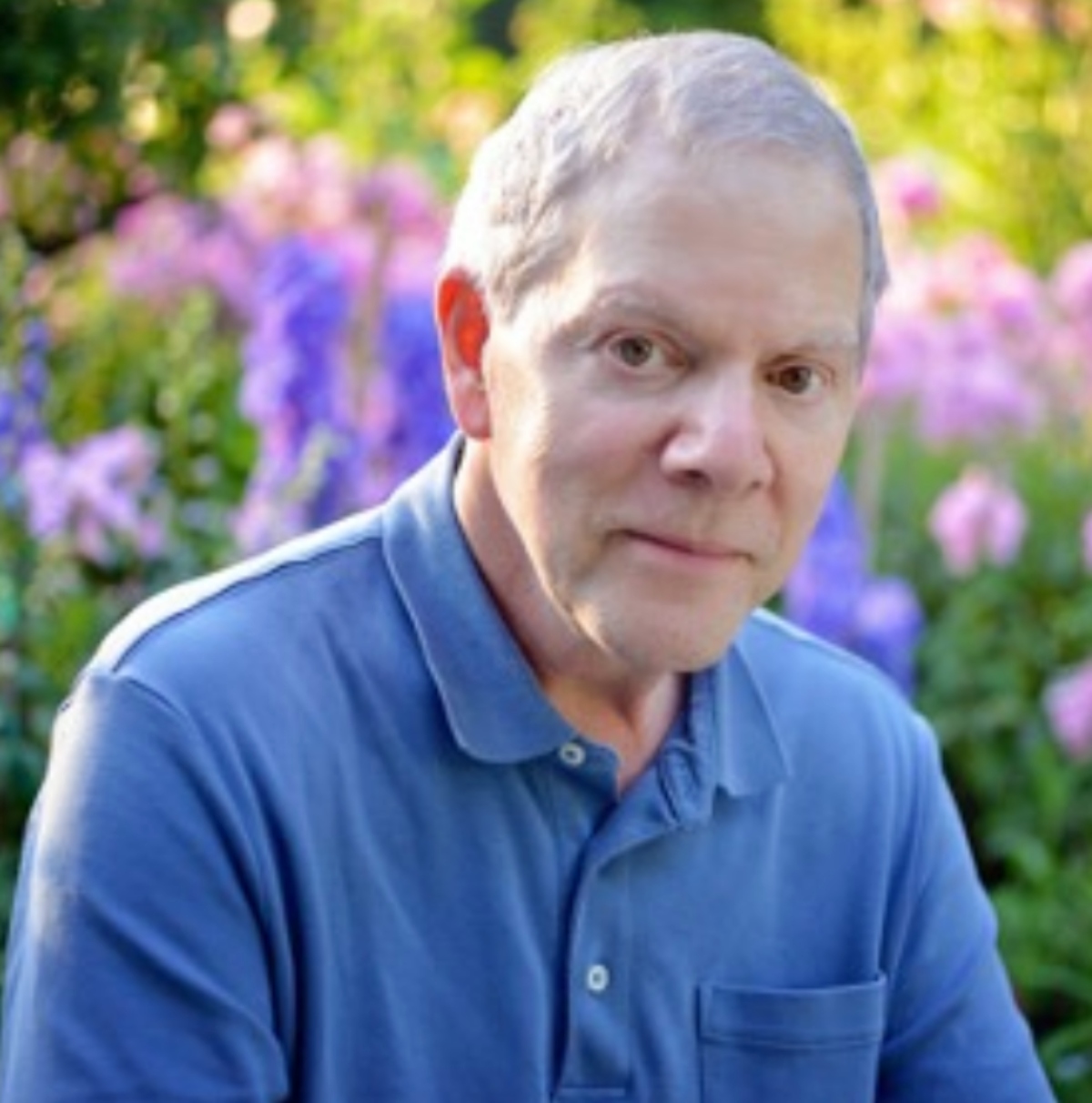
“Doubt everything, find your own light.” These are the last words of the Buddha. It sounds like good advice, but then the human heart invariably presses on to doubt itself! After all, what security, what authority, what kind of assurance can we have that this light is true? The hunger for meaning, the quest for understanding, and the search for answers and solutions are central features of the human condition.
For instance, what is the nature of reality? What is life all about and what is its purpose? A much neglected source for reflection in this area is the book of Ecclesiastes. It is a book that speaks profoundly to our times by asking questions, by setting out contradictions, and by forcing the reader to “feel” what absurdity as an outlook is really like.
Photo Credit:

1. Why Does Ecclesiastes Start with “All Is Vanity”?
As the book opens, we are confronted with its most famous words, “Vanity, vanity, all is vanity and a striving after wind.” Why does he say this? Well, King Solomon has devoted himself to exploring life to examine what is good for people to do under the sun, and his observations have yielded some depressing results:
- Everything in life seems fixed, determined, and bound by inevitability
- Human freedom appears to be constrained by overwhelming necessities, leading to a sense of helplessness
- The endless cycle of repetition leads to a sense of boredom, pointlessness, and despair
Ecclesiastes was possibly written as an educational tool for young men entering into roles of leadership and responsibility. By laying out the vanities of life, the propensities of youth, the all-encompassing reach of death, and the vast urgency of wisdom, it engages a chaotic world with some serious reflections.
As to its relevance for our times, our modern world is steeped in distractions, diversions, and multitudes of self-help strategies. There is little felt need for God and little sense of our own fragility. According to the philosopher Peter Kreeft, “Whenever I teach the Bible as a whole, I always begin with Ecclesiastes. In another age, we could begin with God’s beginning, Genesis. But in this age, the Age of Man, we must begin where our patient is: we must begin with Ecclesiastes.”
Photo Credit: ©iStock/Getty Images Plus/Marinela Malcheva

2. What Does Ecclesiastes Reveal about Life’s Pursuits and Desires?
So, lesson one from this ancient writer for modern people is “the art of effective diagnosis.” Ecclesiastes 2:1-10 is a case in point. Scrolling on our various devices today, we are bombarded with visions that commend our culture’s priorities and values with a screaming urgency. But they are really no different from those of earlier times; the “preacher” has tried them all. In fact, he calls them to the “witness stand.”
He explores laughter and humor (verse 2), projects and possessions (verses 4-6), entertainment, sex, and sensuality (verse 8), and, of course, the pursuit of prestige and recognition (verse 9).
He reminds us of Mark Twain’s insight, “You don’t know quite what it is you want, but it just fairly makes your heart ache you want it so.”
The sage of Ecclesiastes presses us to face our hunger, our deepest longings, and our expectations, and he puts them all on trial. His conclusions are stark. In essence, he says he’s tried it all, evaluated it all, and it’s all pointless. There is a recurring word for pointless, vanity, or meaningless used by the author; it is the Hebrew word ebel. Jacques Ellul comments on this word: “In Qohelet as in Isaiah, everything concurs to suggest the idea of uselessness. This idea is so strong that we might conclude that ebel suggests the idea of nothingness: from the point of view of reality, insubstantiality; from the point of view of the truth, a lie; from the point of view of efficiency, uselessness; and from the point of view of security, deceit.”
Photo Credit: ©iStock/Getty Images Plus/fizkes

3. What Can Ecclesiastes Teach Us about the Limits of Reason?
The European existentialist writers and many postmodern filmmakers arrive at the same conclusion. This is where we learn lesson two from this ancient writer, namely, the limits of reason, rationality, and analysis. George Bernanos captures this dynamic well, “In order to be prepared to hope in what does not deceive, we must first lose hope in everything that deceives.”
A real danger I have encountered in the modern world is a pronounced tendency to overestimate its powers. When those expectations fail to deliver, the resulting backlash is anger, cynicism, and even despair (See Ecclesiastes 2:17-23).
Photo Credit: ©Getty Images/Cold Snowstorm

4. How Does God’s Existence Reframe Life’s Seeming Pointlessness?
Life from an earthly perspective so often seems pointless. Wisdom (it is said) is better than folly, but it, too, is limited. In the face of all we must encounter, the Qoheleth states, “God exists.” If we limit our gaze to “life under the sun,” it’s hard to avoid the conclusion that all is vanity. Fortunately, the fact that God exists fundamentally reframes our understanding of earthly life.
Photo Credit: ©GettyImages/PhotoAlto/EricAudras

5. Why Do We Seek Meaning When Life Seems So Uncertain?
Why do we seek meaning at all? Why do we so deeply long for answers?
- Perhaps it is a survival instinct and purely the result of our response to nature’s power and threats (Naturalism)
- Perhaps the very desire itself is a symptom of our attachment and need, and enlightenment and liberation will resolve it (Buddhism)
- Perhaps we are ignorant of God’s will and ways, and by education and obedience, we can find the solution (Islam)
- Perhaps it is all an illusion or the result of our failures to perform our duty, so we are locked in a cycle of bondage (Hinduism)
Social scientists also weigh in on these big issues. As Ernest Becker points out in a book of the same title, the denial of death is a thoroughly modern malady. Sam Keen comments, “The basic motivation for human behavior is our biological need to control our basic anxiety, to deny the terror of death.”
If we allow Ecclesiastes to do its work, however, we reach some stark conclusions:
- God’s existence and overarching sovereignty
- Death’s power and its all-consuming inevitability
- Life’s overall ambiguity
- History’s seeming intractability
- Humanity’s incredible vulnerability
Photo Credit: ©Francisco Moreno/Unsplash

6. Are We Ready to Face Life’s Limits and Embrace its Messiness?
If we want to heed the wisdom of this book, we must accept and face the limits of knowledge (Ecclesiastes 8:16-17). In Genesis 3:4–6, we see a primal desire to attain knowledge in order to be godlike. Knowledge, we are told, is power. As with all idolatrous trends, we face a process that leads us to absolutize relative things while simultaneously relativizing absolute things. When knowledge is viewed as an instrument of order and control, when it becomes a demanding tyrant in our lives, it is time to take stock.
So where does this lead us? The writer takes us on a journey through life, and he deals with the questions and exasperations that we all inevitably encounter. We see ambiguity, pain, and problems, but it’s not the whole story. There is also fun, food, friends, wisdom, and, most of all, God! These things all dwell in the same world at the same time. This is hard for many of us to digest. We want better answers, we want tidier analysis, we want more comforting visions, and we have them, but not here.
Photo Credit: ©Pexels/Tim Gouw

7. What Can Ecclesiastes Teach Us about Hope in a Broken World?
So, what can we learn from this ancient book? First, I would recommend his strategy of exposure. There is nothing like “listening” to the prophetic voices of our era or context to expose what is often felt as missing in life. In this regard, consider the words of Vaclav Havel, “The tragedy of modern man is not that he knows less and less about the meaning of his own life, but that it bothers him less and less.” Ecclesiastes points us to the human condition as an arena for careful reflection.
Most urgently, remember the value and role of hope. The world as we know it is disordered, damaged, and fallen. Even prior to the coming of the Messiah, the writer closes with the vital reminder that God is sovereign, that He is the judge of all, and that everything will be accounted for (Ecclesiastes 12:13-14). Now, we don’t end here. The Gospel reminds us that “the word became flesh and dwelt among us” (see John 1:1-4; Hebrews 1:1-4, Colossians 1:15-20). Ecclesiastes serves as a good diagnosis, but we require the gospels to offer the fuller picture of hope that the biblical narrative outlines.
Photo Credit: ©GettyImages/Tara Moore

Kenneth Boa equips people to love well (being), learn well (knowing), and live well (doing). He is a writer, teacher, speaker, and mentor and is the President of Reflections Ministries, The Museum of Created Beauty, and Trinity House Publishers.
Publications by Dr. Boa include Conformed to His Image, Handbook to Prayer, Handbook to Leadership, Faith Has Its Reasons, Rewriting Your Broken Story, Life in the Presence of God, Leverage, and Recalibrate Your Life.
Dr. Boa holds a B.S. from Case Institute of Technology, a Th.M. from Dallas Theological Seminary, a Ph.D. from New York University, and a D.Phil. from the University of Oxford in England.
Originally published Friday, 01 November 2024.
